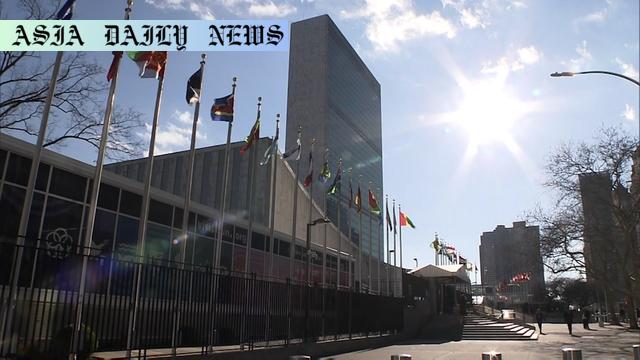Food Insecurity: Over 295 million people globally experienced acute food shortages in 2024, marking the highest number ever recorded.
- 295 million people globally faced acute food insecurity in 2024, the highest number recorded so far.
- Conflicts, security issues, and extreme weather are major reasons for the growing hunger crisis in numerous countries and territories.
- Over 1.95 million individuals were at the highest level of food insecurity, mostly in the Gaza Strip and Sudan.
- The UN warns that reduced humanitarian funding and trade wars could make matters worse.

Understanding the Ongoing Food Insecurity Crisis
Food insecurity has reached alarming levels worldwide, according to a report jointly released by the United Nations and prominent international organizations. In 2024, an unprecedented 295.3 million individuals across the globe experienced acute food shortages. The scale and magnitude of this crisis mark the highest-ever figures since monitoring began. The report categorizes food insecurity on a five-phase scale, with Phase 3 or higher signifying acute shortages. This year alone, over 13 million additional individuals were pushed into this dire state compared to 2023.
Among the most startling revelations is the number of individuals in Phase 5, classified as 'Catastrophe,' reaching 1.95 million. This represents a doubling from the previous year, with the Gaza Strip and Sudan emerging as the most affected areas. Conflicts and worsening security conditions in 20 regions, compounded by extreme weather events in 18 countries, were identified as leading contributors to the crisis. Nations such as Myanmar and Nigeria face a combination of these factors, exacerbating the hunger crisis.
Key Drivers: Conflict and Climate Disruption
Conflict continues to play a pivotal role in driving food shortages, affecting millions across countries and territories. Persistent violence disrupts agricultural production, restricts access to markets, and displaces large portions of the population. In addition, extreme weather events such as droughts, floods, and cyclones have intensified in recent years, further compounding the issue. Drought-stricken regions see reduced crop yields, while floods often lead to the destruction of vital infrastructure and outbreaks of disease, compounding human suffering.
The situation in Sudan and the Gaza Strip represents stark examples of these challenges. With ongoing warfare and limited humanitarian access, communities in these regions face insurmountable difficulties in sourcing regular meals. Combined with climate-related hazards, millions of lives hang in the balance, and recovery becomes an elusive concept.
The Struggle to Respond: Challenges Highlighted by the UN
Highlighting the gravity of the crisis, United Nations Secretary-General Antonio Guterres expressed profound concern. He emphasized that while food insecurity continues to accelerate, global mechanisms to counteract it face diminishing resources. Humanitarian funding, an essential lifeline for millions around the globe, is witnessing a dramatic reduction. This not only limits immediate food aid but also restricts long-term projects aimed at building sustainable food systems. Moreover, potential trade disputes among nations could exacerbate challenges, limiting access to vital food resources and driving up prices globally.
The Secretary-General made an urgent plea for international cooperation, calling on nations and organizations to overcome divisive trade practices and enhance support for humanitarian operations. Without a global commitment, the millions affected by food insecurity will continue to face unimaginable hardships.
Achieving a More Sustainable Future
It is increasingly clear that addressing acute food shortages requires a multifaceted strategy. Governments, international organizations, and non-governmental entities must work collaboratively to improve agricultural resilience, combat climate change, and advocate for peaceful conflict resolution. Investing in technology to enhance crop yields, implementing climate-smart agricultural practices, and improving food distribution networks are all critical solutions. Moreover, humanitarian agencies must receive the financial support needed to bridge the current resource gap.
Ultimately, food insecurity threatens not only individuals but also the stability of societies and their economies. By addressing underlying structural issues and fostering cooperation among nations, it is possible to pave the way towards a world where no one goes hungry.



Commentary
The Personal and Global Implications of Food Insecurity
The relentless increase in global food insecurity demands that we take a step back to assess its profound consequences. Hunger, particularly on this scale, is not just a humanitarian issue—it is a phenomenon that disrupts economies, destabilizes regions, and erodes human dignity. The latest data underscoring the plight of 295 million people worldwide serves as a stark reminder of our collective failure to ensure basic sustenance for all. This crisis, driven by conflict and climate change, underscores the interconnectivity of modern challenges.
A Call to Action: Supporting Those Most in Need
In confronting this harrowing reality, governments and international organizations must demonstrate leadership, empathy, and resolve. The report highlights that certain regions—such as the Gaza Strip and Sudan—are particularly vulnerable, facing both conflict and climate-related obstacles. It is not enough to address the symptoms of food shortages; attention must be directed towards resolving their root causes. At the same time, we must ask whether the global community can truly afford to let humanitarian funding decline at a time when it is needed most.
Understanding Our Role
Beyond macroeconomics and geopolitics, the hunger crisis affects us all at a human level. Food insecurity robs people of their potential, depriving children of education due to malnutrition and forcing families into cycles of poverty. As members of an interconnected world, we have both the moral and practical responsibility to act. Whether through advocacy, donating to relief efforts, or supporting policies that foster sustainability, every action matters.